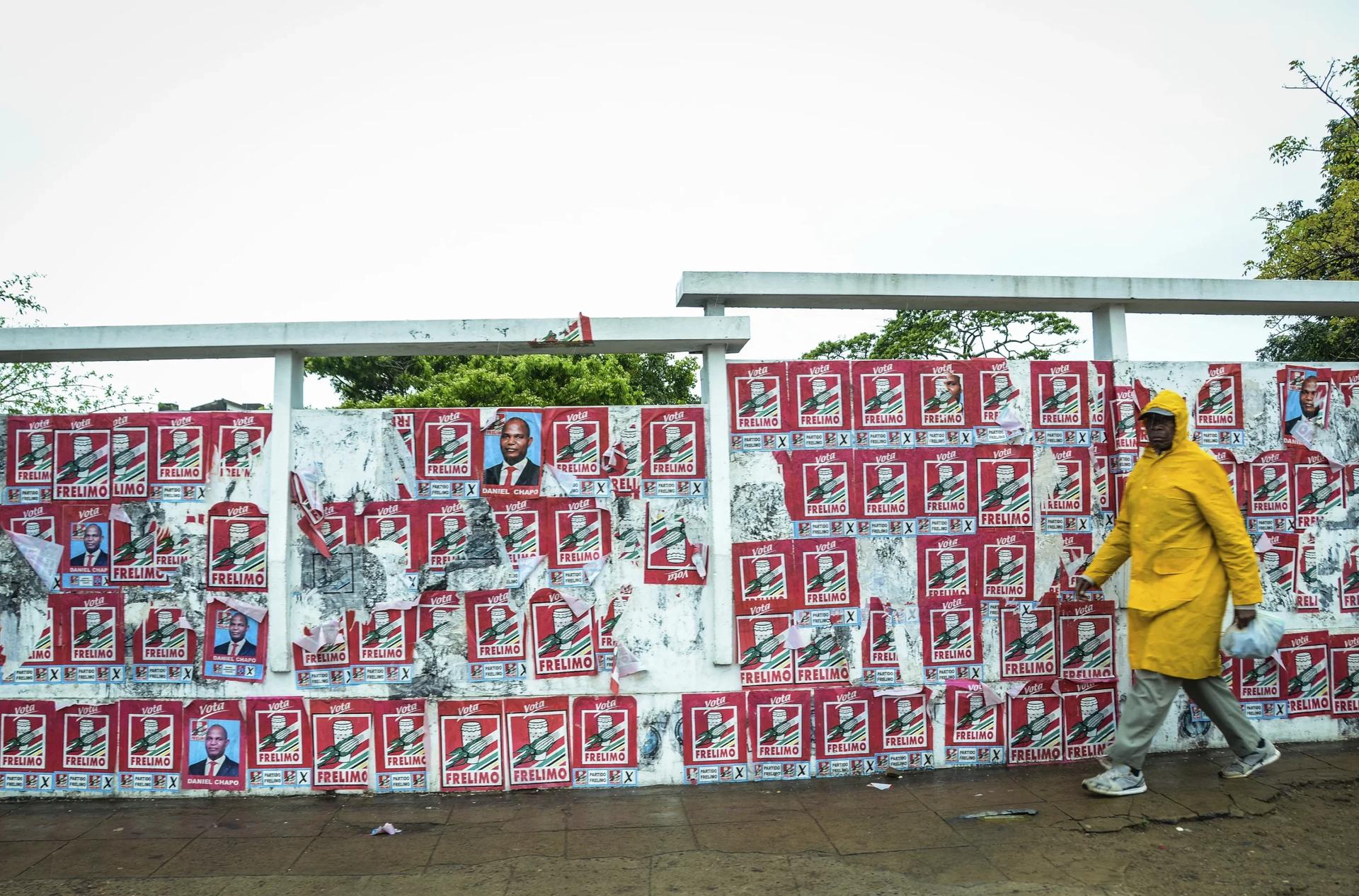YAOUNDÉ, Cameroon – As Mozambique goes to the polls October 9 to elect a president and the country’s 250 members of parliament, Catholic bishops in the southern African country are urging transparency, impartiality, and integrity in the vote.
Around 17 million registered voters are expected to cast their ballots, and the bishops say every voter should be able to vote and their votes counted and adequately reported.
Four major candidates will be competing to replace President Filipe Nyusi, who has been prevented by the Constitution to seek re-election. Nyusi’s party, the “Liberation Front of Mozambique” (Frelimo), has fielded a relatively young Daniel Chapo ,47, hoping that his dynamism would continue the party’s nearly 50-year rule over the country. Chapo is seen as the face of change and has sought to distance himself from the corruption that has characterized Frelimo for much of its rule since independence in 1975.
50-year-old Venancio Mondlane, who left the opposition Renamo party in June amid a leadership tussle, is now running on the ticket of a smaller party called Podemos (“We Can”). The forestry engineer has sparked enthusiasm among younger voters, casting himself as a candidate that breaks from Frelimo’s corruption–ladden government.
Ossufo Momade, 63, will be running on the Renamo ticket. The former war veteran has promised to deal with the insecurity in the country’s Cabo Del Gado region.
Finally, 64-year-old Lutero Simango is running on the ticket of the center-right Mozambique Democratic Movement (MDM).He took over the party’s leadership from his late brother Daviz Simango in 2021.
Simango has campaigned on economic issues and access to healthcare. He is particularly vocal in his disdain for Frelimo, referring to its leaders as “thieves dressed in red.”
In an October 1 pastoral letter, the Bishops’ Conference of Mozambique called for the transparency of the vote, arguing that “the principle of impartiality is essential for ensuring that all citizens are fairly included in the process.”
“We call on all actors to maintain neutrality and integrity, thereby contributing to the transparency of the elections,” the bishops said.
They said the transparency of the ballot will depend on the behavior of the structures in charge of organizing the elections, and urged the country’s electoral bodies to “take the will of the people seriously, ensuring that the results truly reflect the voters’ choices. This is crucial for fostering a more democratic Mozambique.”
They noted significant progress has been made since Mozambique transitioned to multi-party democracy in 1994, and urged citizens to massively participate in the October 9 polls.
But memories of past elections characterized by violence are clear reminders that the present polls, if mismanaged, could hurt a country already reeling from corruption and terrorism.
The four presidential candidates have all been promising to end the terrorist violence to the north of the country.
The oil- and gas-rich northern province of Cabo Del Gado has been ravaged by a jihadist insurgency for nearly seven years. It’s forced some 1.3 million people from their homes. Around 600,000 people have since returned home, but they only came back to shattered communities where houses, markets, churches, schools and health facilities have been destroyed.
Rude Matinada, a lecturer at the Catholic University of Mozambique, said it’s an election that could make or break the southern African country.
“We know that Mozambique is mostly made up of young people, many of whom have no hope for the FRELIMO candidate,” Matinada told Crux.
“During his [Chapo] campaign, he showed the ideas of continuity and made speeches that clearly stated that the State is equal to the FRELIMO Party. That’s why young people and even adults are betting on the opposition,” she said.
She said young people are looking to Podemos’ Venâncio Mundlane “as hopeful for the Mozambican people.”
Matinada said whoever wins the election, insecurity must be a top priority.
“The issue of insecurity in Mozambique must be managed very well,” she told Crux.
“One of the strategies is to cleanse the ranks of all Mozambican forces, because there is a lot of coexistence with insecurity. We don’t know if our police and other forces are there to guarantee order and security or to protect evildoers. The people don’t trust the country’s forces and we need to restore their trust in the Mozambican people,” she explained.
The Catholic bishops urged the candidates to be driven by one thing only: “Service to the people, not a means for personal or party gain.”
They urged citizens to “work together to build a culture of transparency, respect for the opposition, and adherence to democratic principles.”












